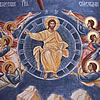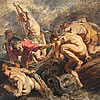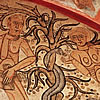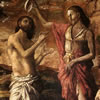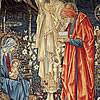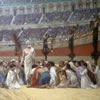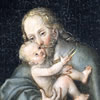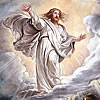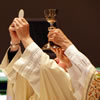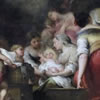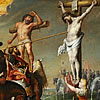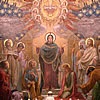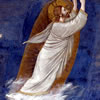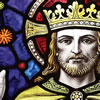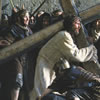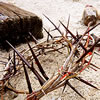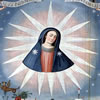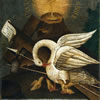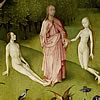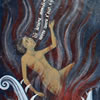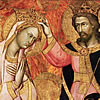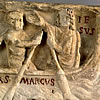Catholicism: where second place is also first place.
Our culture influences us to be number one. We want to get into the best college, get the best grades, get the best job, and get the best salaries. We strive for the best things in life: the best family, the best house, the best car, and the best mobile phone. All of these are good of course as it drives us towards excellence. God placed this characteristic in us so we do great things. We, however, must be careful that we don’t get too ingrained in this “me” culture-of-being-best that it affects our spiritual life where we must come second.
If Christ is our King, then he should always come first in our lives. Everything is ordered to him – our decisions, our purchases, our love life, our professional life – everything. If he is our king, then we live in a kingdom, not a democracy. We don’t have voting power to overrule his teachings or commandments. When God determines an act to be sinful or immoral, we can’t lobby in congress or in the Senate to overturn the decision. It simply just doesn’t work that way. If God is in first place, we can only accept what he gives us or teaches us, or command us to do.
People with sinful pride can never accept second place; they must always come first. They either usurp God’s rightful position, become their own god, and relegate God into second place – perhaps, even, the last place. Or they totally dismiss him altogether saying there is no such thing as God.
Being second was repugnant to the fallen angels, so they rebelled and separated themselves from God. Adam and Eve ate the forbidden fruit so that they will be like gods. It seems they were offended that they couldn’t determine for themselves what is good and evil. (Genesis 3:4-5) It is this rebellion that creates chaos in the natural order of things.
Humility is needed to accept second place. The word humility comes from the word “humus,” which means “earth.” We cannot but recall Adam whose name comes from the Hebrew adamah, which means earth because God created him from the soil of the earth. It reminds us that we are but mere creatures, not gods. There is a hierarchy and we are not on top: God is.
We can combat pride through prayer. The act of praying reminds us there is someone above us. It ingrains in us a sense of dependence on a higher being. We can also combat pride by obedience to the Ten Commandments and the precepts of the Church. The act of obeying someone other than us chisels our pride away and transforms it to humility.
Now, here is the beautiful crazy thing: in Catholicism, the Church is the bride of Christ. It is “one-flesh” with him. So if we put him in first place, by virtue of our oneness with him, we too are in first place – not in nature or authority, but in the sharing of his divine life. What more can a mere creature, made from the dust of the earth, ask if not to live the life of his creator who is supremely superior in every way. It is only in humbling ourselves that we can achieve anything like this. It becomes clear what Christ says, “those who are last will be first, and those who are first will be last.”
Photo by Sebastian Voortman from Pexels
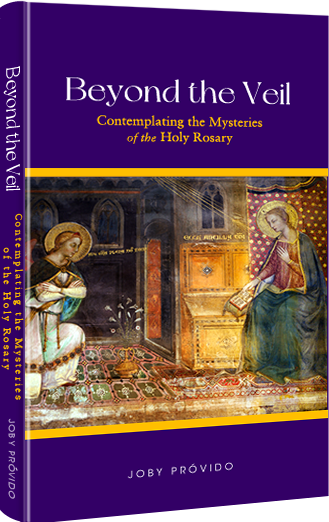
Beyond the Veil
Contemplating the Mysteries of the Holy Rosary
Prayer giants like Pope St. John Paul II, Pope Paul VI, Bl. Archbishop Fulton Sheen, and Bishop Robert Baron advocate that we contemplate on the mysteries of the rosary while we say the vocal prayers. Unfortunately, there are not many books that teach us how to do this. Beyond the Veil comes to the rescue by suggesting seven ways we can pray the rosary the way it was intended.
The larger part of the book offers mental images for each of the mysteries we can use in our contemplation, for how can we imagine the scenes in the rosary if we don't know about them?
Get your copy now either in Hardbound, Paperback, or Kindle
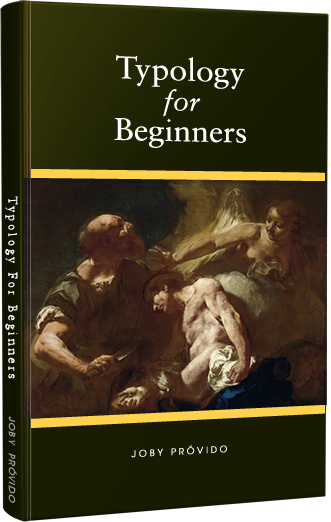
Typology for Beginners
A Catholic Perspective on understanding the New Testament through the Old Testament
First-century Jews converted to Christianity in droves because of the way the New Testament was written to show Jesus was the Messiah promised by the Old Testament. We also learn about how Mary is the New Eve and the Ark of the Covenant in the way the writers portray her.
Through typology, the patterns that connect the Old and New Testaments make the Bible stories more accessible so that one becomes excited to read Sacred Scripture again.
Get your copy now either in Hardbound, Paperback, or Kindle

A Sky Full of Stars
Know Our Lady through her Titles in the Litany
The Church helps us understand who Mary is by honoring her with different titles in the Litany of the Blessed Virgin Mary. Unfortunately, over time and difference of culture, we might not grasp what it is the Church is ascribing to her and lose that opportinity to get to know her.
In A Sky Full of Stars, each title of the Litany is explained so we get know Mary more and fall in love with her all over again.
Get your copy now either in Hardbound, Paperback, or Kindle
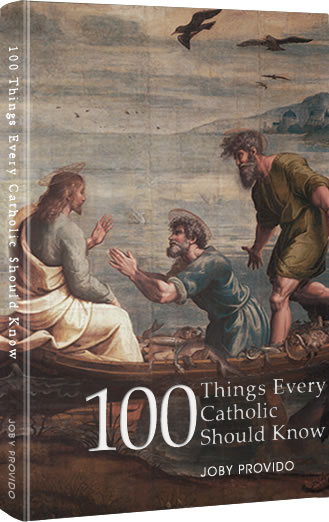
100 Things Every Catholic Should Know
Whether or not you are new to the Catholic Church, or struggling, or lapsed, or dynamically involved, this book will enlighten you with the essentials of the Faith that have been handed down to us by the apostles.
Each of the 100 topics is easy to read and distilled into bite-sized portions. Through cross-referencing, the book also shows how the topics are interrelated. Those who are new to the Faith will find this book an edifying handy reference, and those who have simply forgotten will find it a great review material that might spark a new love for God and religion.
Get your copy now either in Hardbound, Paperback, or Kindle




